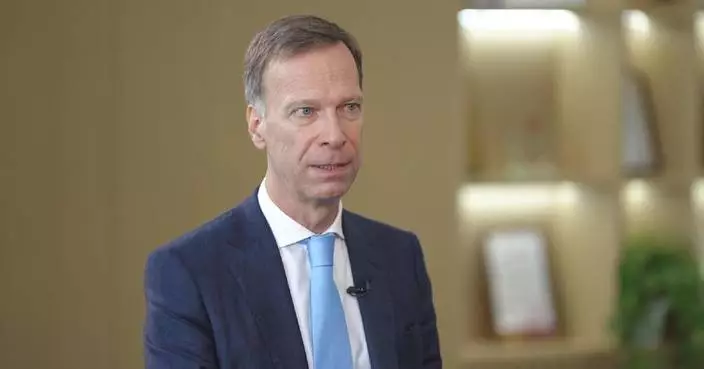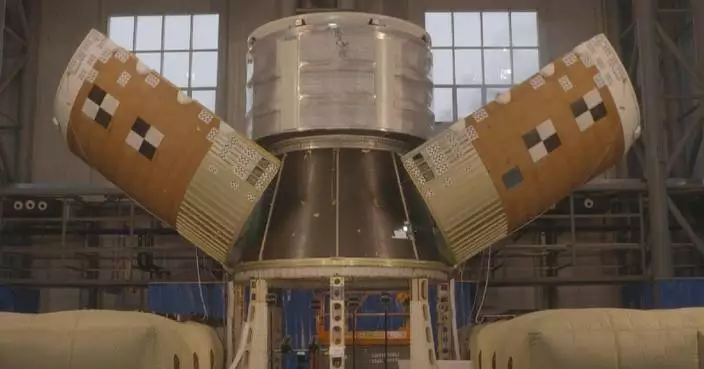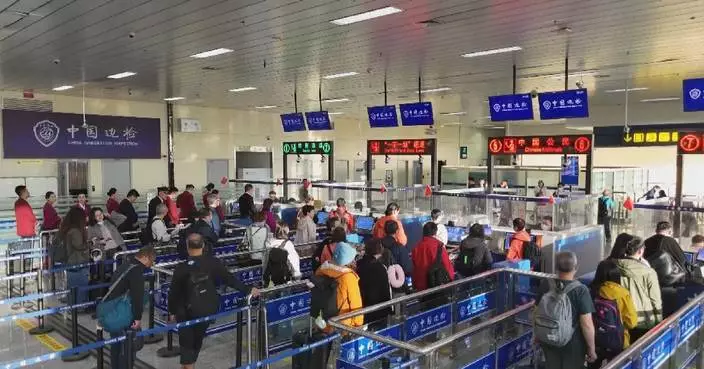Chinese President Xi Jinping called for accelerating innovative, safe and inclusive growth in cyberspace, and jointly striving for a brighter digital future in a video speech to the 2024 World Internet Conference Wuzhen Summit on Wednesday.
Xi extended congratulations via video to the summit, which opened in Wuzhen, east China's Zhejiang Province, on Wednesday.
"At present, a new round of scientific and technological revolution and industrial transformation is now developing rapidly, with artificial intelligence and other new technologies thriving, which has greatly improved mankind's ability to understand and transform the world, while bringing a series of unpredictable risks and challenges," Xi said.
"We should stay on top of the digital, internet-based and smart development trends, take innovation as the primary driving force, security as the bottom-line to stick to and inclusiveness as the value to pursue, push for innovative, safe and inclusive development of cyberspace and work together to march into a still better digital future," he said.
"China is willing to work with all countries around the world to take historical initiative in information revolution and jointly build a community with a shared future in cyberspace, making the internet more beneficial to the people and the world," Xi added.
Themed "Embracing a People-Centered and AI-for-Good Digital Future – Building a Community with a Shared Future in Cyberspace," the 2024 World Internet Conference Wuzhen Summit opened on Tuesday in the well-known water-town of Wuzhen. The four-day event focuses heavily on the technological and industrial advances in the AI sector.

Xi calls for accelerating innovative, safe and inclusive growth in cyberspace, brighter digital future

Xi calls for accelerating innovative, safe and inclusive growth in cyberspace, brighter digital future
Brazilian experts have praised China's role in advancing Brazil's space research capabilities through the construction of a major radio telescope.
Astrophysicist Alex Wuensche is deeply involved in one of Brazil's most important space research projects -- construction of a "Baryon Acoustic Oscillations in Neutral Gas Observations (BINGO)" telescope in the country's northeastern countryside, which will be the largest of its kind in Latin America.
China is a key partner in the project, producing a significant portion of the telescope's equipment. The BINGO project is among the latest in space collaborations that began in 1988 when Brazil and China signed an agreement on research.
Speaking to China Global Television Network (CGTN) in the National Institute for Space Research, Alex Wuensche said that the project has created jobs and promoted technology adoption, and China has played a key role in it.
"We have the expertise from China, that built the largest telescope in the world today -- FAST, which is in northwestern (southwestern) China. It's a 500-meter telescope. For this project specifically, China is the best partner, I think, we could find around," he continued.
The plan is to have the BINGO radio telescope operating by the first half of 2025, with hopes that it will be yet another successful example of Brazil-China cooperation in space research.
Another fruitful outcome of Brazil-China collaboration in space research has been the development and operation of the China-Brazil Earth Resource Satellite (CBERS) program. These Earth-monitoring resources provide crucial environmental data for Brazil and other developing nations, supporting efforts in deforestation control, water management, and urban planning.
"The CBERS program has a very important point. As far as I know, it's the first program in the world that releases free data for all people that want to get it. The CBERS data is available on the internet, and people who want to use this data can make some kind of subscription for free," said Adenilson Roberto Da Silva, a space technology coordinator.

China, Brazil cooperate in radio telescope project











